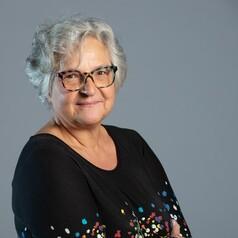
Carole Larigauderie
Sous-directrice adjointe des Projets en Sciences de l’Univers et Cheffe de Projet des contributions françaises à JUICE, Centre national d’études spatiales (CNES)
Ingénieur en Informatique et mathématiques, j'ai débuté chez Airbus avion en ayant exercé 2 postes avant de rejoindre le CNES 5 ans après.
Embauchée en tant qu'ingénieur système, j'ai exercé ensuite de nombreux métiers en interface avec de multiples acteurs: responsable du logiciel de vol de satellites d'observation de la terre,
architecte informatique de projets en neuroscience pour la station spatiale MIR,
responsable de la composante sol utilisateur d'un satellite de défense,
responsable des opérations du spectromètre INTEGRAL (ESA),
coordinatrice du segment sol ATV (ESA),
Cheffe de projets de différents satellites d'environnement en orbite: Polder, Parasol, Calipso (NASA), IASI (EUMETSAT), SMOS (ESA),
responsable des sous-systèmes européens non français de SEIS/INSIGHT (JPL, Imperial College, Université d'Oxford, Université de Zurich, MPS).
Depuis janvier 2016, cheffe de projet des contributions françaises à JUICE (ESA, 9 labos français),
Cheffe de projet de DORN sur Chang'e6 (CNSA, IRAP) jusqu'à la prise de mon nouveau poste:
sous-directrice adjointe des projets en Sciences de l'Univers
Less ![]()
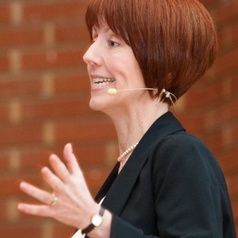
Carole Mundell
Mundell - Professor of Extragalactic Astronomy - is an observational astrophysicist who specialises in astrophysical phenomena outside of our own galaxy, including gamma ray bursts and active galactic nuclei.
Less ![]()
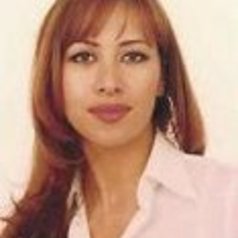
Carole Nakhle
Energy Economist, University of Surrey
Dr Nakhle is an internationally recognised authority on the interplay between economics, energy, governance and geopolitics. With a unique breadth of experience gained from working across a wide spectrum of stakeholders, Dr Nakhle worked with major energy companies (Eni and Statoil) at the executive level, governments and policy makers (including Special Parliamentary Advisor in the UK), international organisations (Commonwealth Secretariat, IMF, United Nations and World Bank), as well as academic institutions and specialised think tanks on a global scale.
Dr Nakhle is the founder and Chief Executive Officer of Crystol Energy, an advisory, research and training firm, which received several awards including Best Independent Energy Consultancy in the UK in 2018 and again in 2021. She also sits on the Governing Board of the Natural Resource Governance Institute (NRGI) and is a Member of its Audit and Finance Committee. She is also Member of the Advisory Boards of the Middle East Institute and Payne Institute at the Colorado School of Mines. She is a program advisor to the Washington based International Tax and Investment Centre and Lead Energy Expert with the Geopolitical Intelligence Services.
Dr Nakhle has played an integral part in the OECD Policy Dialogue on Natural Resource-based Development and has contributed to the development of the organisation’s Principles for Durable Extractive Contracts. She has lectured at leading academic institutions, including: the Blavatnik School of Government at Oxford University, University of Surrey in the UK, The Graduate Institute in Geneva, Saint Joseph University in Lebanon, The National Defense University in the USA and Nato Strategic Direction South Hub in Italy.
Her views are highly regarded. She has published extensively in academic journals, newspapers and magazines and acts as a Reviewer to leading academic journals. She is an avid commentator on energy in the international media and at major conferences and industry gatherings. She has appeared on Al Arabiyya, Al Jazeera, BBC, Bloomberg, CNBC, CNN, Africa News, France 24, and Sky News to name but a few, and was quoted in leading newspapers such as the Wall Street Journal. She is also the author of two widely acclaimed books: Petroleum Taxation: Sharing the Wealth published in 2008 and re-printed in 2012 and used as primary reference in leading universities and industry training courses; and Out of the Energy Labyrinth (2007), co-authored with Lord David Howell, former Secretary of State for Energy in the UK.
Dr Nakhle has worked on projects in many countries, collaborating closely with host governments, ministries, and parliaments, in addition to the private sector and civic society. She has also been on exploratory visits to the Arctic (organised by the Norwegian Government) and the North Sea.
She is fluent in Arabic, English and French. In 2017, she gave evidence to the International Relations Committee at the UK Parliament on the transformation of power in the Middle East and implications for UK policy.
An avid supporter of gender balance, in 2007, she founded the not-for-profit organisation ‘Access for Women in Energy’, with the aim of promoting the development of women in the energy sector. She has also supported the development of similar initiatives in Ghana, Tunisia and the UAE, where she sits on ADIPEC’s Advisory Board for Inclusion and Diversity.
In 2022, Dr Nakhle featured in the ‘Top 22 Outstanding Women CEOs of 2022’ published by the New York based The Women Leaders. A year earlier, she was selected ‘CEO of the Year’ in the UK, by CEO Monthly Magazine. In 2020, she was awarded the prestigious Fellowship of the Energy Institute and featured on the Energy Council’s list of Top Female Executives in the global energy industry. In 2017, she received the Honorary Professional Recognition Award from the Tunisian Minister of Energy, Mines & Renewable Energy.
Less ![]()
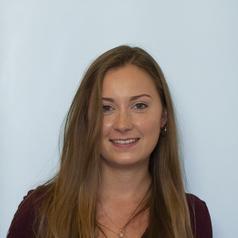
Carole Roberts
Researcher, Carbon Footprint of Transport, UCL
Research Assistant at the University College London (UCL) working with an interdisciplinary team of leading academics investigating the carbon footprint of transport to COP meetings. In 2023, I completed a PhD in Environmental Science at UCL, exploring past environments as a potential analogue for future climate.
Less ![]()
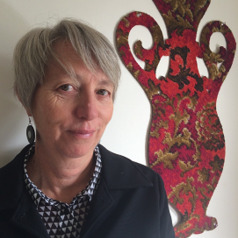
Carole Wilson
Associate Professor in Visual Arts, Federation University Australia
Carole holds a dual role as Associate Professor in Visual Arts in the Institute of Education, Arts and Community and Higher Degrees by Research Co-ordinator in the Graduate Research School. She has previously held leadership positions in the university including Deputy Dean, School of Arts from 2018-2022 and has been a past board member and former Chair of the Art Gallery of Ballarat where she is a current Acquisitions Committee member. As a visual artist living and working in Ballarat, Carole’s original training was in printmaking and she was a founding member of Jillposters, feminist poster group, in 1983 and worked at Another Planet Posters, Melbourne.
Carole has held regular solo exhibitions and participated in curated exhibitions nationally and internationally. For many years she has utilised discarded and salvaged materials such as floral carpets, maps and atlases to create works which engage with aspects of botany, garden history, travel and historical ornament. In recent years she has undertaken residencies in Italy, the US, Malaysia and The Netherlands which have all had a significant impact on her work. She is represented in many public collections including the National Gallery of Australia, the Powerhouse Museum, State Library of Victoria and a number of regional and university galleries. Her posters are in museum collections in Finland, the Czech Republic, Russia and Poland.
Areas of expertise: Practice-led research in the visual arts, particularly in the fields of textiles, works on paper, printmaking, painting and installation.
Research interests: Carole is a member of the Artful Engagements with Place: Space, History, Society research group which activates social, political, environmental and historical themes, from the personal to the global, to interrogate the human and more than human forces that shape our past, define our present and influence our future. She supervises broadly across the creative and visual arts at Honours, Masters and PhD levels.
Less ![]()
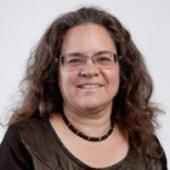
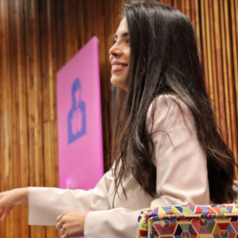
Carolina Pulido Ariza
PhD Candidate, Compassion Fatigue, University of Plymouth
Carolina Pulido Ariza is originally from Colombia and currently based in Rome, Italy, is a fundraising and innovation specialist with international experience in various organizations and markets (France, Colombia, Italy, Chile). She is currently finalising her PhD at the University of Plymouth, where she studies the influence of emotions in Charitable Giving. In her research, she investigates the impact of negative stimuli, in contrast to positive ones, on the generosity of individuals, employing a multifaceted approach that integrates self-report measures, behavioural assessments, and neurophysiological methods.
Additionally, Carolina also serves as a visiting lecturer at the University of Political Science in Montpellier, IESEG Paris and SSM Rome.
She is the author of the recently published poetry collection "TRECE".
Less ![]()
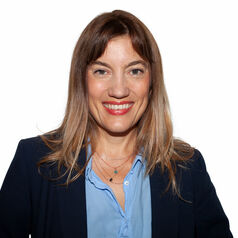
Carolina O.C. Werle
Professor of Marketing, Grenoble École de Management (GEM)
Carolina O.C. Werle is a Professor of Marketing at Grenoble Ecole de Management. She holds a PhD in marketing from the University of Grenoble and supervises research. She was a visiting scholar at Cornell University and the University of California (Irvine). Her work focuses on external factors influencing food consumption and physical activity, social marketing and obesity prevention strategies.
Carolina's research has been published in the academic journals Journal of Consumer Research, Journal of Public Policy & Marketing, Journal of the Association for Consumer Research, Marketing Letters, Appetite, Food Quality & Preference, Journal of Marketing Management, and "Recherche et Applications en Marketing".
Less ![]()
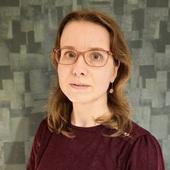
Caroline Bhattacharya
Doctoral Researcher, Doctoral Programme in Political, Societal and Regional Change, University of Helsinki, University of Helsinki
Less ![]()
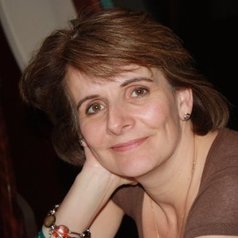
Caroline Clark
Senior Lecturer in Organisation Studies, The Open University
Caroline Clarke is a Senior Lecturer in Management at the Open University Business School. Caroline previously worked in Bristol Business School, and prior to that she spent five years as a researcher on the Change Management Consortium (previously at Bath and Cranfield University).
Caroline's undergraduate degree was awarded by the Open University and her positive student experience meant that returning to the Open University some years later as an academic was an easy decision to take. Caroline's main research interests are located in identity and emotion, and she has also written about managers and change, and has presented on auto-ethnography as a methodology. Caroline has recently collaborated on a 3 year study of academics in business schools exploring concepts of identities, insecurities, gender, and career behaviours amid the increasingly performative demands of academia.
Caroline is currently conducting research looking at the professional identities of Veterinary Surgeons with Professor David Knights. For this timely and important project they have been awarded several small grants and now hope to extend their work to include a cross-cultural study to help inform and make a comparison with the findings from the UK (73 veterinary surgeons).
Caroline work is qualitative, and is situated within a critical interpretive framework, with a particular interest and focus on discourse.
Caroline has published in Human Relations, Organization Studies, the International Journal of Human Resource Management, and the Scandinavian Journal of Management. Caroline also undertakes peer reviewing activity for a number of journals.
Less ![]()
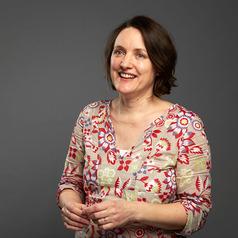
Caroline Dalton
Associate Professor of Neuroscience and Genetics, Sheffield Hallam University
I am Theme Lead for Living Well with Chronic Disease at the Advanced Wellbeing Research Centre, and lead the Health and Disease group in the Biomolecular Sciences Research Centre.
Less ![]()
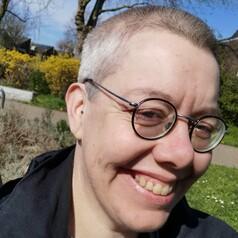
Caroline Derry
Senior Lecturer in Law, The Open University
Caroline formerly practised as a barrister and solicitor and has worked in academia for over 20 years. She has published on gender, sexuality and criminal law, legal history, and the entry of women into the legal profession.
Less ![]()
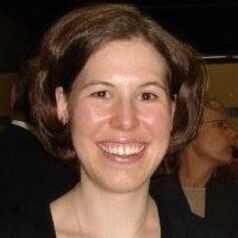
Caroline Dickens
Researcher, University of the Witwatersrand
I am a researcher in the Department of Internal Medicine, University of the Witwatersrand, with a PhD in molecular biology. My post-doctoral fellowship was undertaken at the International Agency for Research on Cancer (IARC) focusing on epidemiological aspects of breast cancer in South Africa. For the past 15 years, I have worked as part of the Translational Research Team, headed by Prof Raquel Duarte. Research interests include the epidemiological, genomic and molecular aspects of breast cancer and kidney disease in Africa.
Less ![]()
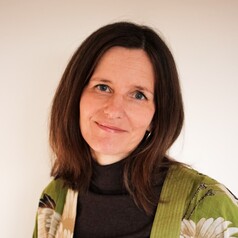
Caroline Elbra-Ramsay
Deputy Head of School, Education, Language and Psychology, York St John University
Caroline Elbra-Ramsay is the Deputy of the School of Education, Language and Psychology, and Associate Professor, at York St John University. The majority of her work is in Initial Teacher Education as she had many years working as a primary school teacher. It was in the primary classroom where her interest in assessment and feedback began and this has continued to inform her own research. Her PhD looked at student teacher conceptions of feedback (as both learner and practising teacher) arguing that feedback had relational, moral and pedagogical dimensions. Her other research interests are Philosophy for Children, dialogue and professional practice.
Less ![]()
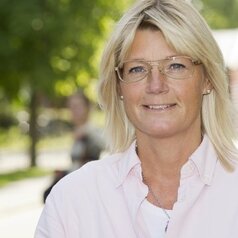
Caroline Graff
Professor of Genetic Dementia Research, Karolinska Institutet
Caroline Graff was appointed Professor of Genetic Dementia Research at Karolinska Institutet in 2011.
Caroline Graff gained her degree in medicine in 1992 at Uppsala University before becoming PhD in clinical genetics in 1997. Between 1997 and 2001 she did her postdoc in mitochondrial biology at Karolinska Institutet.
From 2002 to 2006 she carried out research at the then Neurotec department at KI. In 2007 she became an associate professor at KI where, during the period 2007-2009, she worked as a specialist in clinical genetics at Karolinska University Hospital. From 2009 to 2010 she worked as a university lecturer in genetic dementia research at KI combined with a post as a clinical specialist at Karolinska University Hospital, Huddinge.
She is a founding member of Swedish Frontotemporal dementia Initiative, which is a network for researchers clinicians, patients and carers, and since 2011 she has been the director of the Brain Bank at Karolinska Institutet.
Caroline Graffs research aims to find genetic markers for neurodegenerative diseases such as Alzheimer's FTD, ALS and Parkinson's. It should increase knowledge of individual genetic risk factors for these diseases, knowledge which in turn could be applied to clinical practice in the form of genetic and preventive counselling.
Around 55 million people globally suffer from dementia, where Alzheimer's is the most common and the number is feared to increase threefold up until 2050.
Less ![]()
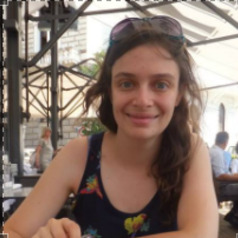
Caroline Holmes
Polar Climate Scientist, British Antarctic Survey, Associate Lecturer, The Open University
My research at BAS seeks to understand how the current set of climate models used in climate change assessments simulates sea ice, and how this affects our future projections of climate change both within the polar regions and remotely. I am analysing output from the Coupled Model Intercomparison Project Phase 5 (CMIP5) used in the most recent IPCC assessment (2013) to evaluate how different models simulate the dynamic and thermodynamic processes important to the evolution of sea ice concentration. I work closely with BAS colleagues in both the Polar Oceans team and Atmosphere, Ice and Climate teams. This research is funded under the NERC large grant “Real Projections – Robust projections of real world climate change” led by Mat Collins at the University of Exeter.
I completed an undergraduate degree in Mathematics at the University of Cambridge, followed by an MSc in Atmosphere, Ocean and Climate at the University of Reading. With a particular interest in atmospheric dynamics, I pursued a PhD at the University of Reading Department of Meteorology. My thesis investigated the possible impacts of changes in sea ice cover on the midlatitude atmosphere, through idealised modelling experiments with imposed sea ice. I then undertook a short postdoc at the University of Edinburgh looking at impacts of climate change on Scotland in sectors such as building energy demand, before moving to the British Antarctic Survey to pursue research into the coupled climate system of the polar regions.
Less ![]()
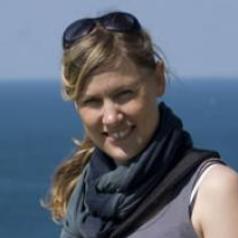
Caroline Isaksson
Senior Lecturer and Associate Professor in Biology, Evolutionary Ecology unit, Lund University
Caroline is the Senior Lecturer in Biology at Lund University. Her main research interests lie in the interface between ecology, evolution, toxicology and physiology and her current research focuses on the impacts of urbanization on avian populations. Before her permanent position at Lund University, she was a post-doctoral fellow at Oxford University/UK and at the University of Groningen/the Netherlands. Her PhD-degree was awarded in 2007 at Gothenburg University/Sweden.
Less ![]()
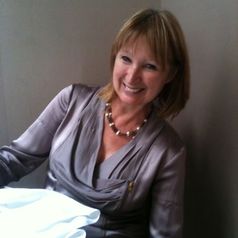
Caroline Knowles
Caroline writes on race and ethnicity, especially postcolonial whiteness, circulations of people (as migrants) and objects, urbanism and madness. She specializes in visual, spatial and biographical methods. She collaborates with photographers, most recently with Douglas Harper of Duquesne University in Pittsburg investigating how British migrants live in Hong Kong (funded by the British Academy). She has just completed the biography of a pair of flip-flop sandals with artist Michael Tan of Nanyang Technological University in Singapore (funded by the British Academy). This involved following the plastic trail from factories in SE China to Ethiopia, one of China’s most important emerging markets, passing through the lives of migrant factory workers, smugglers, market traders and onto the feet of an elderly woman navigating the streets of Addis Ababa in a year old pair of flip-flops. She also worked with Roger Hewitt and colleagues in Hamburg and Bergen on 'The Architecture of Religious Transmission'. This project, funded by NORFACE, investigates the mechanisms of religious transmission among young people in the Finsbury Park area of London and comparable sites in Hamburg and Oslo. She is currently working on a research project investigating British migrants in Beijing.
Less ![]()
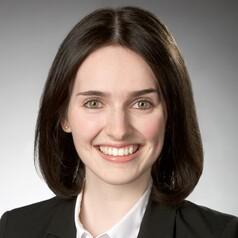
Caroline Leicht
PhD Candidate, University of Southampton
I am a PhD candidate in the Department of Politics and International Relations at the University of Southampton. My research is at the intersection of gender, media and politics. I am particularly interested in gendered representations of political actors in the media, both during campaigns and in normal times. In my PhD project, I examine the role of gender in representations of presidential candidates in political satire. Using a mixed methods approach, this project explores gender role congruity, gendered framing, and gendered themes in political satire and news coverage of candidates in the 2016 and 2020 US Presidential Elections.
I currently serve as the Communications Officer of the Political Studies Association Early Career Network.
Prior to joining the University of Southampton, I received my MA in International Relations and Security from the University of Liverpool and my BA in North American Studies from the Free University of Berlin, Germany. During my undergraduate studies, I was a visiting student at New York University and at the University of California, Los Angeles.
My research has been published in Political Studies Review and I am a frequent contributor to academic blogs. Outside of academia, I have worked as an editor and reporter in print, online and television journalism. Most recently, I covered elections in the US (2020), in the UK (2019) and in Germany (2017 and 2021).
Less ![]()
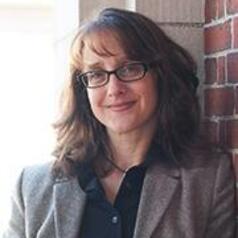
Caroline Light
Senior Lecturer on Studies of Women, Gender, and Sexuality, Harvard University
Caroline Light is a Senior Lecturer and the Director of Undergraduate Studies in WGS. Her research explores histories of citizenship and belonging, and the ways in which white supremacy, (hetero)sexism, and classism shape collective (mis)memory and archival silence. Light's first book, That Pride of Race and Character: the Roots of Jewish Benevolence in the Jim Crow South (NYU Press, 2014) illuminates the experience of southern Jewish assimilation through the lens of benevolent uplift. She illuminates the gendered and racialized performances of elite, white cultural capital as a critical mode of survival for a racially liminal community of southerners. Stand Your Ground: A History of America’s Love Affair with Lethal Self-Defense (Beacon Press, 2017) provides a critical genealogy of our nation’s ideals of armed citizenship. Beginning with the centuries-old adage “a man’s home is his castle,” she tracks the history of our nation’s relationship to lethal self-defense, from the duty to retreat to the “shoot first, ask questions later” ethos that prevails in many jurisdictions today. Ultimately, she contends that the contemporary appeal to “stand your ground” masks its exclusionary commitment to security for the few at the expense of the many.
Less ![]()
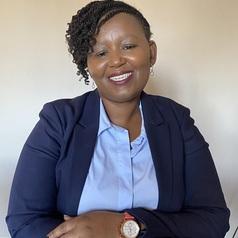
Caroline Maluleka
Senior Pathologist, National Institute for Communicable Diseases
Caroline Maluleka is a senior pathologist at the Centre for Healthcare-Associated Infections, Antimicrobial Resistance and Mycoses (CHARM) at South Africa' National Institute for communicable diseases.
Less ![]()
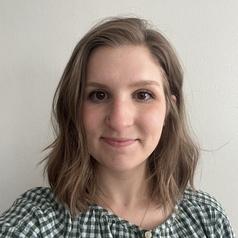
Caroline McAtee
Law Student at the University of South Carolina School of Law, Research Assistant for the Excellence in Policing and Public Safety Program, University of South Carolina
Caroline McAtee is a third-year law student at the University of South Carolina Joseph F. Rice School of Law. Her current roles within her law school community include Student Director for the SC Association of Criminal Defense Lawyers and research assistant for the Excellence in Policing and Public Safety Program. Caroline spent her first summer in law school working as a law clerk for the SC Commission on Indigent Defense in its Capital Trials Division, representing indigent clients facing the death penalty. The next summer, Caroline clerked for the Richland County Public Defender's Office, where she plans to step into the role of assistant public defender following graduation. Prior to her time at the University of South Carolina, Caroline earned her B.S. in Multidisciplinary Anthropology from Appalachian State University in 2021, where she crafted her degree around the anthropology of crime, criminalization, and violence.
Less ![]()
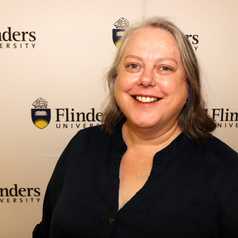
Caroline Phelan
Lecturer, Flinders University
Dr Caroline Phelan has an extensive clinical background working across the acute healthcare environment, in particular, critical care and pain management. She has worked in senior clinical roles, as well as in management, education and research positions. She works in the College of Nursing and Health Sciences at Flinders as a balanced academic and is the course coordinator for postgraduate palliative care programs. Her research interests include decision-making, palliative care, pain management and critical theory.
Less ![]()
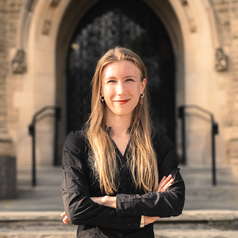
Caroline Seiler
PhD, McMaster University
Dr. Caroline Seiler recently defended her PhD in Medical Sciences (Physiology and Pharmacology) at McMaster University on the clinical effects of gluten, wheat, and the nocebo effect in irritable bowel syndrome and whether patients change their diets when presented with tailored information. Having worked at McMaster's Farncombe Institute, she published high-impact meta-analyses on celiac disease, inflammatory bowel diseases, and probiotics, and coordinated two irritable bowel syndrome clinical trials. In her free time, she has been a ballroom dancer for the past 7 years and enjoys dancing modern jive and American-style tango.
Less ![]()
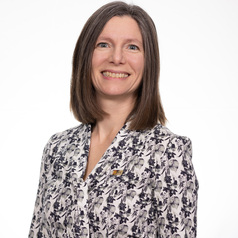
Caroline Sirois
Professor in Pharmacy, Université Laval
Caroline Sirois est pharmacienne et pharmacoépidémiologiste. Elle est professeure à la Faculté de pharmacie de l'Université Laval.
Less ![]()
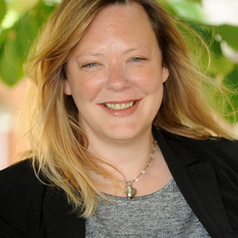
Caroline Spence
Senior Lecturer and Programme Leader in Department of Business and Law, De Montfort University
Caroline Spence has been a marketing practitioner for almost 20 years, specialising in Digital Marketing and Public Relations. Still an active practitioner, Caroline now passes her professional expertise and contacts onto students to help them gain an advantage in employment in a competitive marketplace. Caroline has worked for global agencies at a senior level on national campaigns for household brands.
Less ![]()
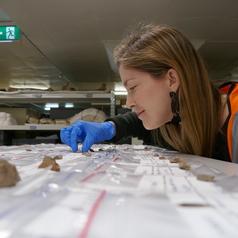
Caroline Spry
Adjunct Senior Research Fellow, PhD, La Trobe University
Dr Caroline Spry is an Adjunct Senior Research Fellow in the Department of Archaeology and History at La Trobe University, Melbourne, Australia. She is lead and co-investigator of several research projects with Traditional Custodians, universities, museums, government agencies and industry partners. Her research has been funded by the Australian Government, universities, foundations and government agencies.
Caroline has investigated a variety of archaeological sites spanning the last ~40,000 years to the post-contact period in southeastern Australia, Melanesia and South Africa. Her research interests include lithic technology (refitting/conjoin analysis, and portable X-ray Fluorescence), culturally modified trees, oral history, and working with Traditional Custodians to combine traditional knowledge and archaeological methods. Caroline's PhD research compared Aboriginal people's technological responses to environmental change at Lake Mungo, Willandra Lakes Region World Heritage Area, between ~24,000-8,000 years ago
Caroline has presented at international conferences and published extensively in peer-reviewed journals and edited volumes, including The Holocene, Journal of Archaeological Science: Reports, Lithic Technology, Journal of Lithic Studies, Australian Archaeology, and Historical Records of Australian Science. She has also published articles in The Conversation.
Caroline is passionate about public outreach and science communication, and is Co-chair of National Archaeology Week in Australia. She is Advisory Editor of 'Excavations, Surveys and Heritage Management in Victoria', the peer-reviewed proceedings of the Victorian Archaeology Colloquium, held annually in the State of Victoria. Caroline is also an invited expert for the National Trust of Australia (Victoria) Register of Experts.
Caroline is a registered Heritage Advisor under the Aboriginal Heritage Act 2006 (Vic.).
Less ![]()
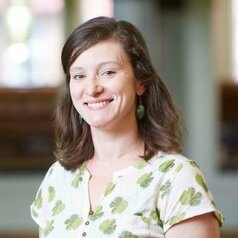
Caroline Summers
Assistant Professor of Translation & Transcultural Studies, University of Warwick
Caroline Summers is Assistant Professor of Translation and Transcultural Studies at the University of Warwick. Prior to joining Warwick in 2022, she worked at the University of Leeds (2012-2022).
Caroline’s research explores translation in the literature of German Reunification (1989/90) and its aftermath. More broadly, she is interested in literary translation and how it links to ideas about authorship, and also in the power of narratives to shape our identities and our lives.
Less ![]()
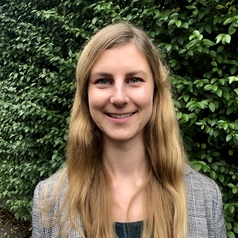
Caroline Verfuerth
Research Associate, Centre for Climate Change and Social Transformations, Cardiff University
Caroline is a Research & Knowledge Exchange Associate at the Centre for Climate Change and Social Transformations (CAST) based at both Cardiff University and the University of Bath.
Recently, she has also worked as a Policy Research Fellow with the Welsh Government in the Strategic Evidence Unit. Prior to joining the CAST centre, she completed her PhD at the University of Sheffield (2019). She holds an MSc in Environmental Psychology from the Otto-von-Guericke University Magdeburg (Germany) and a BSc in Psychology from the University of Hamburg (Germany).
Less ![]()
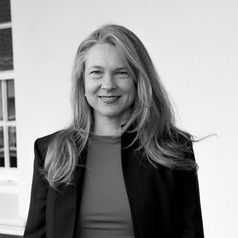
Caroline West
Senior Lecturer in Philosophy, University of Sydney
Caroline's research addresses fundamental questions about how we should live. Currently she is researching the nature of happiness and its role in well-being and the good life. What is happiness? Why should we want it? And how do we get it?
Less ![]()
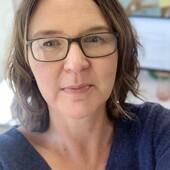
Caroline Whitehouse
PhD Candidate, School of Psychology & Public Health, La Trobe University
Less ![]()
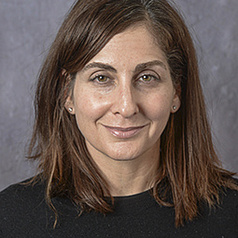
Caroline R. Nagel
Professor of Geography, University of South Carolina
Caroline is a broadly trained human geographer whose interests lie at the intersection of urban, cultural, and political geography. As a migration specialist, Caroline has long been interested in the politics of identity, integration, and citizenship in immigrant-receiving contexts. Her work on British Arab and Arab American activists (with Lynn Staeheli) and on Christian outreach to immigrants in the U.S. South (with Patricia Ehrkamp) has explored themes of transnationalism, ethnic formation, multicultural discourse, immigrant activism, and religious identity. Underlying all of her work on migration is a concern with the everyday, place-based production and negotiation of social membership and belonging. Her years of teaching and research on immigration are reflected in her 2016 book, co-authored with Liz Mavroudi, entitled Global Migration: Patterns, Processes, and Politics (Routledge). Caroline also has an interest in Lebanon that stems from her work on Arab immigrants. Having visited Lebanon shortly after the country’s civil war, Caroline returned as a Fulbright scholar in 2010-11 and was based at the American University of Beirut. Her work on Lebanon has focused on the redevelopment of Beirut and the role of NGOs in producing new citizenship discourses in a fragmented political landscape. Caroline’s current research explores the political subjectivities of young Christians who participate in short-term overseas missions. This research asks how young people come to understand themselves as being in community with, and as having obligations to, faraway people and places. It also examines the tensions and overlaps between ideas of Christian mission and more secular conceptions of ‘global citizenship’ and humanitarianism.
Less ![]()
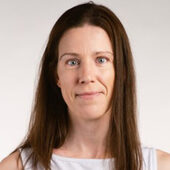
Caroline Victoria Robertson
Research Fellow, Griffith Research Centre for Mental Health, Griffith University
Less ![]()
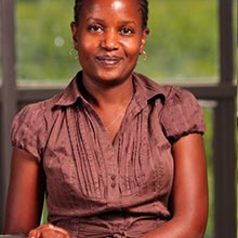
Caroline W. Kabiru
Senior Research Scientist, African Population and Health Research Center
Caroline Kabiru is a researcher working with the African Population and Health Research Center (APHRC). She leads the Center's Sexual, Reproductive, Maternal, Newborn, Child and Adolescent Health (SRMNCAH) Unit. Caroline holds a PhD in health promotion and behaviour from the University of Georgia (US) and a Master’s degree in public health from the University of North Carolina, Chapel Hill (US). Caroline is driven by her passion to support efforts to ensure that all young people live healthy and productive lives.
Less ![]()
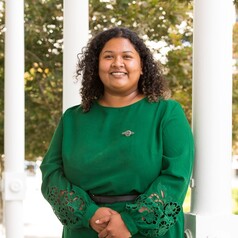
Carolle Varughese
Research Assistant, University of Auckland
I’m currently working as a research analyst and a writer. Having worked at high schools, universities, and not-for-profit organisations, I am learning to blend my public policy, education, and physics expertise.
Less ![]()
- Market Data























